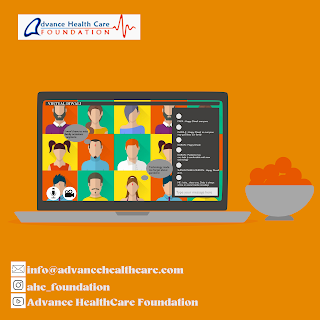WOMEN’S HEALTH:
DEBUNKING MYTHS
“Each time a woman stands up for
herself, without knowing it possibly, without claiming it, she stands up for
all women.”
-
Maya Angelou
The glorious occasion of International Women’s Day is celebrated annually on the 8th of March. Women around the world have systematically been subjected to various stereotypes, prejudices, and inequalities concerning access to education, health care, resources, and opportunities. Besides, several myths concerning women’s health have been normalised as a part of societal discourse, and it becomes imperative to highlight the truth.
One such myth is regarding breast cancer.
Many women believe that it is not necessary to undergo yearly mammograms if
they have no family history of breast cancer. However, it has been proved that
getting mammograms every year after you turn 45 is an essential way to detect
breast cancer early and stop it from spreading. Besides, women believe there is
nothing they can do to prevent such cancer. Research has shown that by
maintaining a healthy weight and avoiding alcohol, women can
reduce their chances of developing breast cancer. With regard to heart disease,
a common myth is that heart disease only affects you when you're older, and
heart disease mostly affects men. Thus, many women dangerously believe they
don’t have to worry about heart disease until they reach their 60s, even though
heart disease can strike during the 50s and even 40s. One
in three women in the US will die from heart disease. In fact, each year, more
women die from heart disease than men.
There are also various home-grown and cultural myths associated with pregnancy. Some people believe that foods (like soy or yams) would help tackle infertility. However, research has shown that eating specific foods, from chocolate to goji berries—or anything else—will not help improve chances of conceiving. The best path to follow in such situations is to visit a gynecologist who would perform tests
and determine appropriate course of action. Another common belief about new moms is that they would be joyful after giving birth. However, many women experience the “baby blues” i.e., feeling down or not enjoying normal activities. This feeling must be normalised and it should not label a woman as a bad or neglectful mother. Three in four women will experience some type of depression after giving birth. If such depression lasts more than a few weeks or gets worse, the woman must receive a diagnosis for postpartum depression.
Furthermore, the subject of sexual and
reproductive health (SRH) carries a lot of stigma and taboo in India. This can
have a negative influence on women's emotional well-being, mindset, lifestyle
and most importantly, physical health. The difficulty of tackling
socio-cultural taboos and beliefs is exacerbated by their lack of information
and understanding about puberty, menstruation, and overall reproductive health.
One common myth is that Women with PCOS cannot get pregnant and losing weight
can ‘cure’ PCOS
However, science holds that while irregular ovulation and hormonal abnormalities, women with PCOS may have difficulty conceiving, but with the right medicines and assistance from a fertility professional, it is possible for them to bear a child. Besides, while being fit and living a healthy lifestyle can help manage PCOS symptoms, there is currently no proven treatment for the same. Women also believe that Birth control pills can cause cancer. The fact is that more than 200 million women worldwide use oral contraceptive pills. They are safe, and have no proven scientific link to causation of cancer.
 It is imperative to debunk these myths
since they cause misinformation, shame, and neglect of health among women
across the world, and especially in India. As a result of these false beliefs
women do not seek timely treatment or even adopt harmful treatment procedures
which can lead to long-term deteoritating impact on their health. Hence, this
women’s day join us to create awareness regarding female health, its causes,
consequences, and treatment paths.
It is imperative to debunk these myths
since they cause misinformation, shame, and neglect of health among women
across the world, and especially in India. As a result of these false beliefs
women do not seek timely treatment or even adopt harmful treatment procedures
which can lead to long-term deteoritating impact on their health. Hence, this
women’s day join us to create awareness regarding female health, its causes,
consequences, and treatment paths.
By Sanya [editorial team]





Comments
Post a Comment